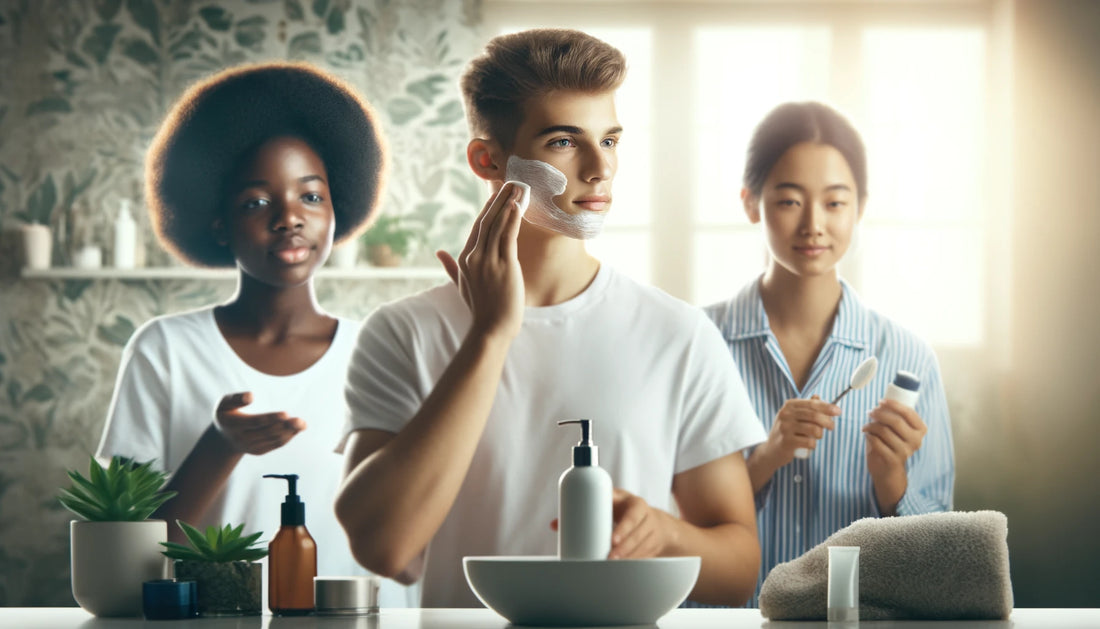Navigating the teenage years can be challenging, especially when it comes to skin. Hormonal changes can lead to a variety of skin issues, from acne to oily skin. It's crucial for teenagers to establish a skincare routine that promotes healthy habits early on. Here’s a comprehensive guide for teens to maintain clear, healthy skin, setting the foundation for lifelong skincare success.
Understanding Teen Skin
Teen skin is predominantly influenced by hormonal changes that can increase oil production, leading to clogged pores and breakouts. Understanding your skin type (oily, dry, combination, or sensitive) is the first step towards choosing the right skincare products.
Basic Skincare Routine for Teens
-
Cleansing: Opt for a gentle cleanser that removes dirt and excess oils without stripping the skin of its natural moisture. Cleansing twice a day—morning and night—is essential.
-
Moisturizing: Even oily skin needs hydration. Choose a lightweight, non-comedogenic moisturizer that won't clog pores.
-
Sun Protection: Daily use of sunscreen can prevent premature aging and protect against sun damage. Look for broad-spectrum SPF 30 or higher.
Tips for Acne-Prone Skin
Acne is a common issue during the teenage years due to increased sebum production. Here are a few tips:
-
Use Salicylic Acid or Benzoyl Peroxide: These ingredients are effective at clearing acne by exfoliating the skin and killing bacteria.
-
Avoid Harsh Scrubbing: Over-exfoliating can irritate the skin and worsen acne. Use gentle, non-abrasive cleansers.
-
Never Pop Pimples: Popping can lead to scars and spread bacteria. Instead, use a spot treatment.
Lifestyle Changes for Better Skin
-
Balanced Diet: Eating a diet rich in fruits, vegetables, and whole grains can help the skin from the inside out.
-
Adequate Hydration: Drinking plenty of water helps to detoxify the skin and keep it hydrated.
-
Regular Sleep: Aim for 8-10 hours of sleep per night to allow your skin to repair itself.
The Importance of Patch Testing
Before starting any new product, it's important to perform a patch test to ensure there's no allergic reaction. Apply a small amount of the product to your inner forearm to see if any irritation occurs over a day or two.
Consulting a Dermatologist
If skincare issues persist or if over-the-counter products aren’t effective, it might be time to consult a dermatologist. They can provide personalized advice and treatment options, including prescription medications if necessary.
Establishing a skincare routine as a teenager not only helps combat the common skin issues faced during these formative years but also sets the stage for healthy skin practices throughout adulthood. Remember, the key to great skin is consistency and the use of products suited to your skin type and needs.

